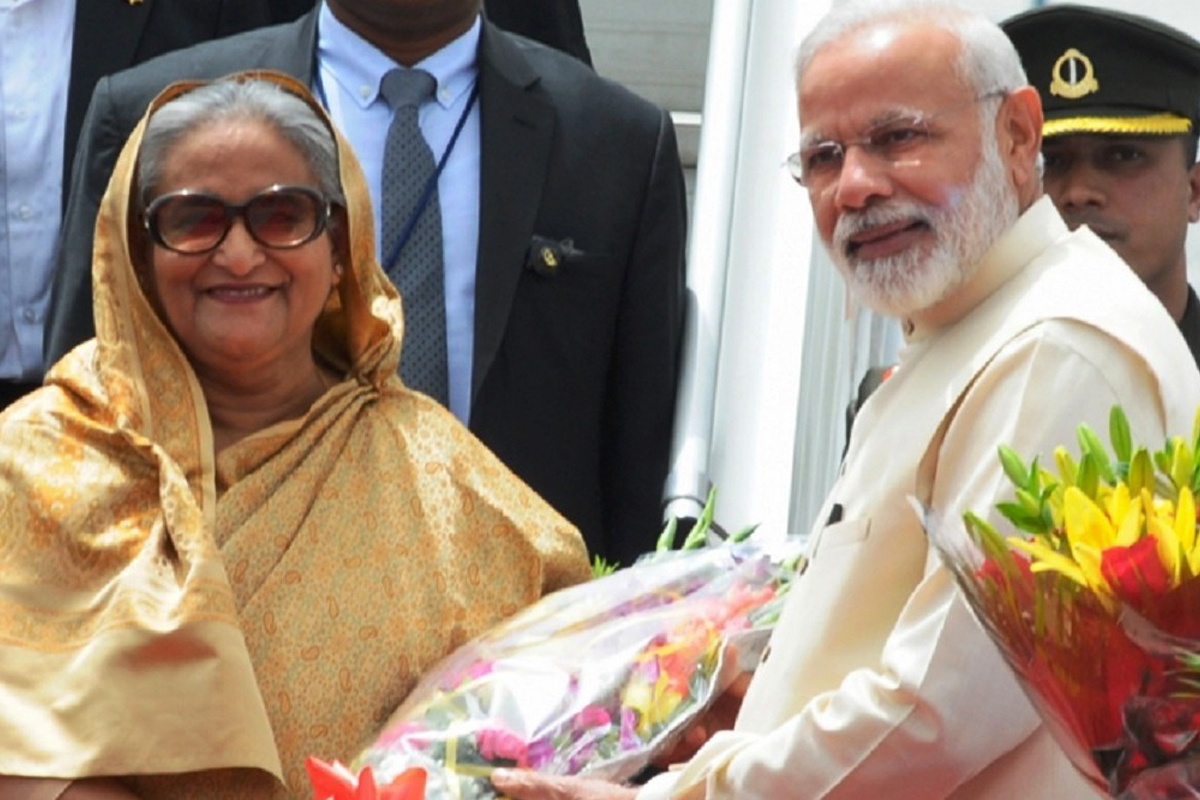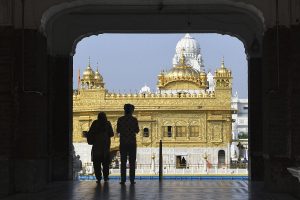It’s a strange coincidence that Bangladesh has been in the news in the very recent past for its perceived coolness towards India. Because such a trend surfaced in the wake of the Chinese aggression in Galwan valley on June 15, South Asia watchers felt that China was definitely attempting to drive a wedge between the two friendly countries taking away the warmth generated by Sheikh Hasina after she came to power in 2009.
As she amply demonstrated in her promises and actions, Hasina accommodated all Indian interests including security concerns and always walked the extra mile to allay India’s worries. On its part, however, as believed by Bangladesh watchers, India probably fell short of meeting Bangladesh’s expectations specially on its legitimate demands of seeking a share of Teesta waters. The Chinese aggression in Ladakh gave a ready opportunity to the Chinese to send overtures to Bangladesh in an apparent attempt to wean it away from India.
Advertisement
Initially, it came in the form of economic packages and attractive offers narrowing the trade deficits and removing trade barriers, followed by the roping in of Pakistan to woo Bangladesh. It would perhaps be naive to think that it’s only the Chinese government which was taking all these measures. In fact there appears to be a strong pro-China lobby active in Bangladesh influencing public opinion to gradually abandon India and give a fresh look to Sino-Bangladesh relations.
Soon after the Chinese misadventures in Ladakh, Bangladesh newspapers, in very provocative tenors, carried columns questioning India on its ‘silence’ and refraining from retaliation as seen with the Balakot strikes in the wake of Pulwama terror attacks of 2019. The language used in these narratives could easily be interpreted as anti-India and pro-China. Similarly, debates were generated in popular Bangladesh TV channels with many showing a tilt towards China.
Social media and cyber space were conspicuously filled with India bashing . As these matters were unfolding, news came out that a Chinese company, Beijing Urban Construction Group ( BUCG), was awarded a contract for the Osmany airport terminal renovation in Sylhet. It could be a routine contract but is being projected by many as a deliberate throw away to the Chinese. It would therefore, seem that propaganda by the Chinese lobby within Bangladesh is at work .
In this context, those who favour strong India-Bangaldesh ties suspect that a noted industrialist known for his proximity to PM Hasina and who is a key advisor, may be attempting to spoil friendly bilateral ties with New Delhi. He is said to have a soft corner for China and has been encouraging China to invest in Bangladesh. His closeness to Pakistan is also not ruled out by knowledgable quarters. A few days ago, a Dhaka newspaper castigated India for inordinate delays in completion of projects. The report quoted figures to say India was responsible for the inertia in completing time-bound projects.
Such figures may only be of academic value but if rehashed time and again they project India in poor light. Amid these developments, Pakistan Prime Minister Imran Khan recently called up Sheikh Hasina and not only exchanged routine pleasantries as is done ordinarily but touched upon the sensitive issue of Kashmir. Imran knows fully well that all along Bangladesh has maintained the consistent stand that Kashmir is an internal matter of India. It’s also possible that Imran wanted to take advantage of the deteriorating Indo-Nepal relations and fish in troubled waters. However, it shows political maturity on Hasina’s part to have ignored Imran on the subject of Kashmir.
Surely, Imran’s phone call was at the prompting of China. Pakistani media too has been playing up the “new look” Pakistan- Bangladesh relationship . Obviously, forces are at work to bring Pakistan and Bangladesh closer after bilateral relations soured when the Hasina-led government hanged to death war criminals close to Pakistan. In January this year, Pakistan appointed a new High Commissioner to Dhaka after a considerable lapse of time. This implies there would be more diplomatic activity and under that cover, pro-Pakistan and jehadi elements propped up by the ISI would resume their ugly plans to strengthen anti-India forces as they target India’s security interests.
This calls for a thorough counter-surveillance dynamic to neutralise any move detrimental to India and Bangladesh. Meanwhile, not to cave in to adverse propaganda like India not honouring its commitments on pending projects, and to allay apprehensions and misgivings, Indian External Affairs Minister S Jaishankar has made diplomatic overtures. While acknowledging Bangladesh’s economic growth in recent years and the economic progress it has made, India gifted 10 Broad Gauge locomotives to the country.
These were promised to Bangladesh on the occasion of Prime Minister Hasina’s last India visit in October 2019. These locomotives have been designed to accommodate Bangladesh’s local railway requirements. BD Foreign Minister AK Abdul Momen and Railway Minister Sujon were among those who witnessed the handing over of the locomotives. They expressed the hope that in future, the India-Bangladesh-China-Mynamar corridor would increase rail connectivity in the region. This gesture should silence those critics who accuse India of ignoring its promises. Such damage control measures notwithstanding, forces opposed to the closeness between India and Bangladesh continue to try and inflict damage.
Reports have trickled in that Indian High Commissioner to Bangladesh, Riva Ganguly Das, who is under orders of transfer to New Delhi, has been waiting for the last four months to call on Prime Minister Hasina. This delay is extraordinary, given the friendly relations between the two countries. Plus, the present High Commissioner is an old Bangladesh hand, having served in Dhaka earlier and generated considerable goodwill. The delay has naturally kicked up speculation and emboldened anti-India forces. Overall, India must make all efforts to ensure that it retains excellent relations with its staunchest ally in the neighbourhood.
(The writer is a retired IPS officer and a security analyst who had served in Bangladesh and as a former National Security Advisor to the Prime Minister of Mauritius. Views expressed are personal)











